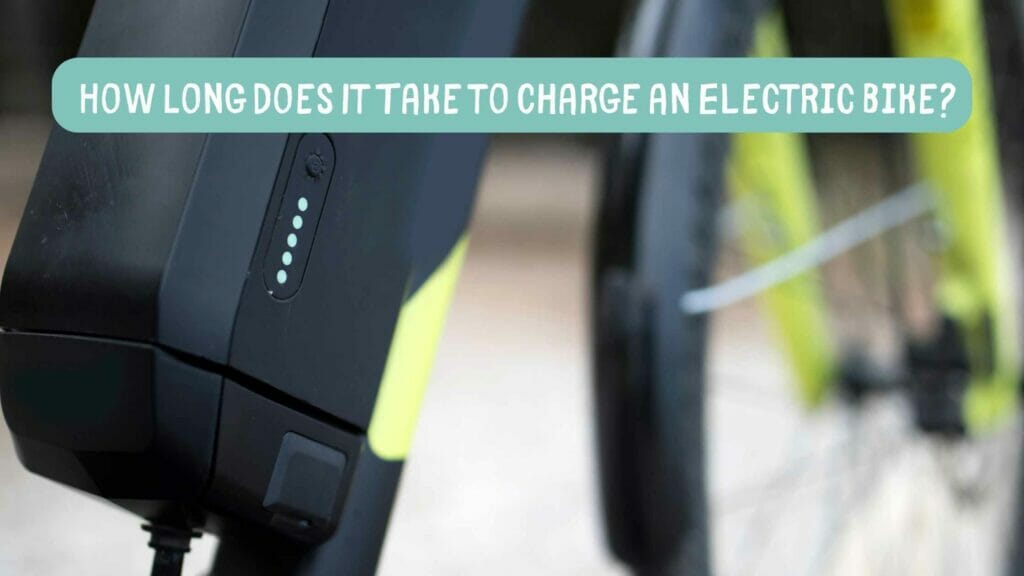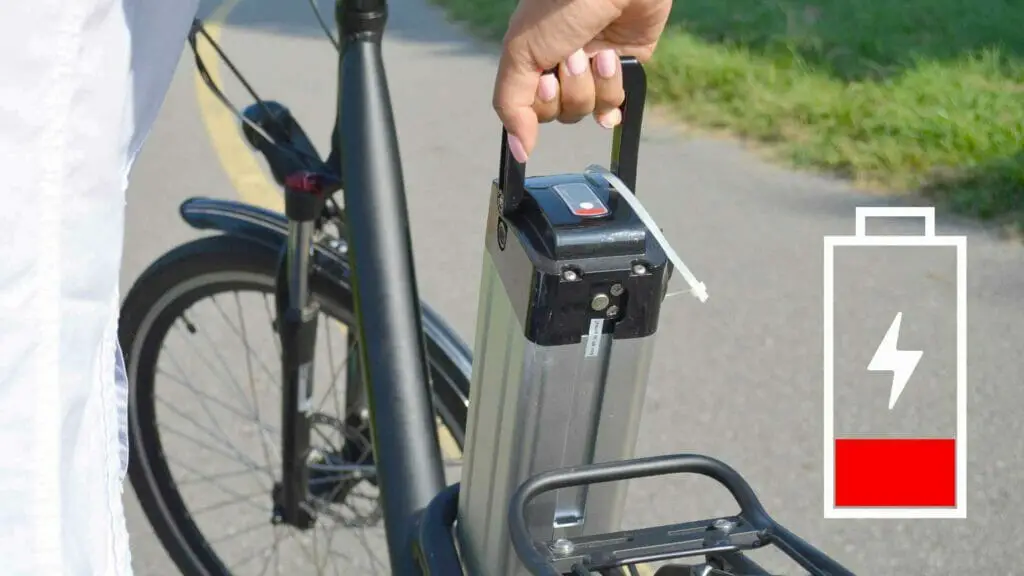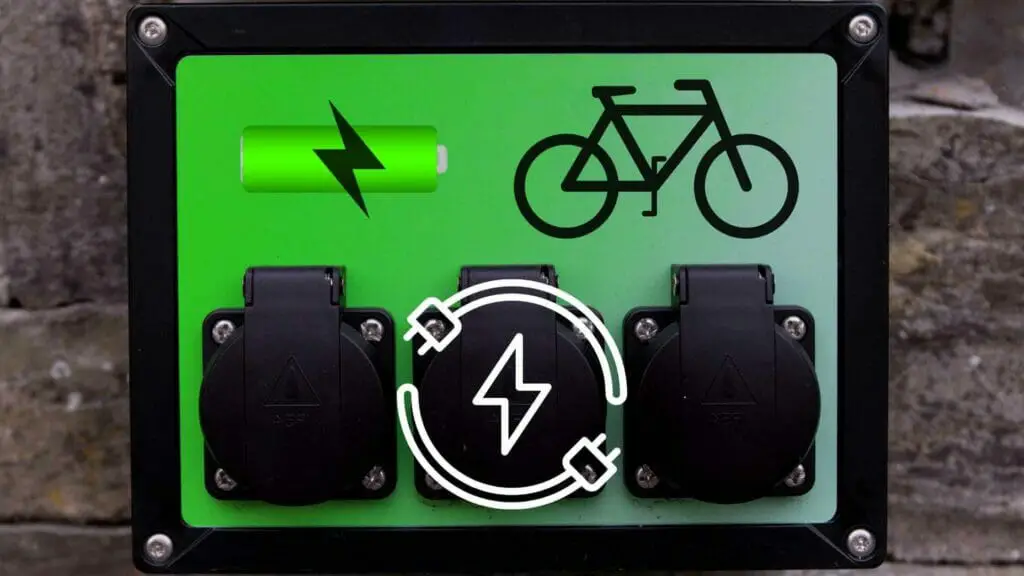
Are you curious about how long does it take to charge an electric bike? The answer to that question depends on various factors, including the type of battery, its capacity, and the charger you use. Lithium-ion batteries are the most common type of battery used in electric bikes, and they typically take between 3 to 6 hours to charge fully. However, the charging time depends on many factors, including the battery’s capacity, the charger’s output, and the battery’s overall life.
By learning how long it takes to charge your battery per charge, you can plan your rides more effectively and ensure that your battery lasts as long as possible. With the right charging tips and battery care, your electric bike’s battery can deliver a lot of miles and last for many years to come.
How Long Does It Take to Charge an Electric Bike?
When it comes to charging your electric bike, the time it takes to fully charge your battery depends on several factors. The charging time depends on the battery’s capacity and the power supplied through the charger.
In general, a lithium-ion ebike battery that is completely empty can take around 3 to 6 hours to fully recharge. However, if your battery still has some charge left, it might take less time than this.
It’s essential to charge your battery on a regular basis, but you don’t want to charge it after every ride. Experts recommend that you charge your battery after every 2-3 rides or when it reaches around 20% to 30% charge. Overcharging your battery can lead to a shorter battery life, so it’s best to avoid charging it after every ride.
Battery life is affected by charge cycles, which is the number of times a battery can be charged and discharged before it starts to lose capacity. Lithium-ion batteries typically have a lifespan of around 500 charge cycles, so it’s crucial to take care of your battery to ensure it lasts as long as possible.
When it comes to charging your battery, it’s essential to pay attention to the battery capacity and range. For example, a 48V ebike battery with a capacity of 10Ah will take around 4 to 5 hours to fully charge. However, if your battery has a higher capacity, it may take longer to charge fully.
Battery care is also important to ensure your battery lasts as long as possible. Avoid exposing your battery to extreme temperatures, and store it in a cool, dry place when not in use. It’s also a good idea to avoid letting your battery run completely flat, as this can cause damage to the battery cells.
Factors That Affect Charging Time
When it comes to charging your e-bike, there are several factors that can affect the charging time. Understanding these factors can help you better manage your battery life and ensure that your e-bike is always ready to go when you are.
Battery Capacity and Range
One of the most significant factors that affect charging time is the battery capacity and range. The larger the battery, the longer it will take to charge fully. Lithium-ion batteries are the most common type of battery used in e-bikes, and they typically have a lifespan of around 500 charge cycles. It’s essential to take care of your battery and charge it on a regular basis to ensure that it lasts as long as possible.
Charger Type and Output
The type of charger you use, and its output can also affect the charging time of your e-bike. Some chargers are designed to charge your battery faster than others, and it’s important to use the right charger for your battery. Using the wrong charger can damage your battery and reduce its lifespan.
Temperature
The temperature can also affect the charging time of your e-bike. If the battery is too cold, it may take longer to charge fully. On the other hand, if the battery is too hot, it can damage the battery and reduce its lifespan.
Battery Care
Taking care of your battery is crucial to ensure that it lasts as long as possible. It’s important to charge your battery after every use and avoid letting it sit for long periods without charging. You should also avoid overcharging your battery and aim to keep it between 20% and 80% charged.
Charging Time
The time it takes to fully charge your battery depends on its capacity and the charger you are using. On average, it can take anywhere from 4 to 6 hours to fully charge an e-bike battery. However, some batteries may take less time to charge fully, while others may take longer.

Charging Tips
Charging your electric bike battery is an essential part of owning an e-bike. Here are some tips to keep in mind when charging your battery pack:
- Charge your battery after every ride: It’s best to charge your battery after every ride, especially if you’ve used up a significant amount of electric power. This will help ensure that your battery is always topped up and ready to go when you need it.
- Don’t overcharge your battery: Overcharging your battery can significantly reduce its lifespan. Be sure to unplug your battery once it reaches the required battery level, and don’t leave it charging for longer than necessary.
- Store your bike in a comfortable environment: Lithium batteries don’t like extreme temperatures, so it’s best to store your bike in a cool, dry place. Avoid leaving your bike in direct sunlight or in a hot garage.
- Use your e-bike regularly: Using your e-bike regularly can help keep your battery in good condition. If you’re not using your bike for an extended period, be sure to charge it at least once a month to keep the battery from discharging completely.
- Charge your battery for the right amount of time: The time it takes to charge your battery depends on the battery’s capacity and the charger’s output. Generally, it takes around 3-6 hours to fully charge a lithium battery. Be sure to check the manufacturer’s recommendations for charging times.
- Take care of your battery: Proper battery care is essential for a long-lasting battery. Be sure to keep the battery clean and dry, and avoid exposing it to extreme temperatures or moisture.
Pro Tip: If you have a Bosch e-bike, be sure to use the correct charger for your battery. Using the wrong charger can damage your battery and reduce its lifespan.
How Long Does an Electric Bike Battery Last?
One of the most significant factors that determine the usability of an electric bike is its battery life. After all, no one wants to be stranded in the middle of a ride with a dead battery. The battery life of an electric bike depends on various factors, such as battery capacity, charge cycles, and battery range.
Most electric bike batteries use lithium-ion technology, which is known for its high energy density and long lifespan. However, like all batteries, lithium-ion batteries also have a limited lifespan and will eventually need to be replaced.
On average, an electric bike battery should last between 3 to 5 years, depending on usage and how well it is maintained. A good e-bike battery can last more than 800-1000 charge cycles and provide you with more than 70 miles of assistance while in low power.
To extend the lifespan of your e-bike battery, it is essential to follow some simple charging practices. Avoid charging your battery after every ride as it can reduce the battery’s lifespan. Instead, charge it only when the battery level drops below 20%. Also, try to avoid charging your battery in extreme temperatures, as it can damage the battery.
It is worth noting that the battery range of an electric bike can vary depending on various factors such as terrain, rider weight, and weather conditions. On average, most electric bike batteries can provide a range of 25-70 miles per charge. However, some high-end e-bikes can provide a range of up to 100 miles per charge.
Should I Charge My eBike Every Night?
One of the most common questions asked by eBike owners is whether they should charge their bike’s battery every night. The answer is not a straightforward one, as it depends on several factors.
Firstly, it’s important to note that charging your eBike’s battery regularly is essential to maintain its performance and lifespan. If you use your bike daily, then charging it every night is a good idea to ensure that you always have enough battery power for your next ride.
However, if you only use your eBike occasionally, then charging it every night may not be necessary. In such cases, you can charge the battery once every few days or as needed. Overcharging the battery can also lead to poor battery charge cycles, so it’s best to avoid leaving it on the charger for extended periods.
Another factor to consider is the type of battery your eBike uses. Lithium-ion batteries, which are the most common type, can be charged at any time without affecting their performance. However, if your eBike uses a lead-acid battery, it’s best to avoid leaving it fully discharged for an extended period, as it can cause permanent damage.

Battery Care and Maintenance
Taking care of your e-bike battery is crucial to ensure it lasts as long as possible. Here are some tips to help you maintain your battery and extend its lifespan:
- Charge your battery on a regular basis: Lithium-ion batteries used in electric bikes have a limited lifespan, and their performance decreases over time. To maximize the battery’s lifespan, it’s essential to charge it on a regular basis, even if you’re not using the bike. A good rule of thumb is to charge your battery after every ride, but not necessarily to a full charge.
- Don’t overcharge your battery: Overcharging your battery can reduce its lifespan and cause it to lose its ability to hold a charge. Most e-bike batteries take between 2-6 hours to fully charge, depending on the battery’s capacity and the power supplied through the charger. Once your battery reaches the required charge level, unplug it from the charger to avoid overcharging.
- Store your battery properly: If you’re not going to use your e-bike for an extended period, it’s essential to store your battery properly. The ideal storage temperature for most e-bike batteries is between 0-20°C (32-68°F). If you’re storing your battery for an extended period, make sure to charge it to around 50% before storing it.
- Avoid extreme temperatures: Extreme temperatures can damage your e-bike battery. Avoid exposing your battery to temperatures below freezing or above 60°C (140°F). If you’re riding in extreme temperatures, try to keep your battery in a temperature-controlled bag or backpack.
- Charge your battery before it’s fully depleted: Lithium-ion batteries used in e-bikes have a limited number of charge cycles, usually between 500-1000 cycles. To maximize the battery’s lifespan, it’s best to avoid fully depleting the battery on a single charge. Instead, try to recharge your battery before it’s fully depleted.
- Factors that affect battery range: The range of your e-bike battery depends on several factors, including the battery’s capacity, the terrain you’re riding on, your weight, and the level of assistance you’re using. To maximize your battery’s range, try to ride on flat terrain, use the lowest level of assistance possible, and avoid carrying unnecessary weight.
Pro Tip: To extend your e-bike battery's lifespan, avoid charging it to a full charge and avoid fully depleting it on a single charge. Instead, aim to charge your battery to around 80% and recharge it before it's fully depleted, preferably when it reaches 20%.
Remember, taking care of your eBike’s battery is crucial to ensure that you have a smooth and enjoyable riding experience. So, make sure you charge it regularly and avoid overcharging it to keep it in top condition.

